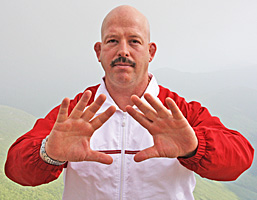I’ll admit it. It got me.
It wasn’t anything I put in my mouth, inhaled or injected.
But it was an addiction that was killing my productivity and weakening me over time.
The good news is that I didn’t have to give this addiction up completely in order for me to lose my addiction to it.
With drugs and alcohol, that’s not the case. If you go back to them once you’ve given them up, you can be in serious trouble within 24 hours.
My addiction was this thing we call a… smart phone.
In my case it was what I call an eye-phone. Ya know, that thing that spies on you all day long and even has someone you can talk to, who spells her name backwards, to trick you. Oh yes, Iris. She’s watching you, too.
Anyway, no sense telling you what you already know about this subject – but if you want to increase your productivity by 1,000%, and spend less time with Iris and more with the people you love, then I strongly suggest Theatre of the Mind Masters.
There are only two steps on this ladder that you may want to climb to gain the time, freedom, energy and more that you say you want more of in your life.
Matt Furey

